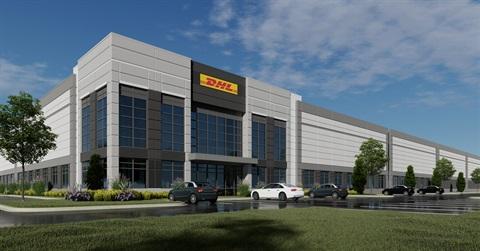The Fort Worth City Council has approved a tax-abatement incentive package for retail giant Carhartt. Carhartt had been awaiting the Council's approval for a seven-year tax abatement on up to 75% of their business personal property taxes. These incentives are capped at a maximum value of $2.0mm.
This approval paves the way for Carhartt to move into a 1.2mm SF distribution center at 16101 Wolff Crossing, west of Texas Motor Speedway. The plan is projected to pay back all incentives within two years and generate over $3.1mm in net new taxes over the next decade. Carhartt will be investing $80mm in business personal property, including machinery and equipment. Perhaps more importantly, the distribution center will support 500 full-time jobs by the time it is operating at the end of 2024, with a minimum average salary of $55,000. Carhartt, for reference, has only 5500 employees, making this a substantial expansion.
Fort Worth officials are very optimistic about the project. Robert Sturns, City of Fort Worth director of economic development, shared his thoughts:
Fort Worth is excited to welcome Carhartt to our city. They’re a very well-known, well-respected brand, and their presence here will be an asset to our city’s growing collection of workwear companies.
 DHL will be overseeing the design, construction, and management of the distribution center (pardon the image quality, it's all that was available)https://www.fortworthtexas.gov/news/2023/4/carhartt
DHL will be overseeing the design, construction, and management of the distribution center (pardon the image quality, it's all that was available)https://www.fortworthtexas.gov/news/2023/4/carhartt
DHL will be responsible for design, construction, and management. DHL and Carhartt have an existing relationship that includes a number of warehouses complete with autonomous robots to maximize efficiency. Susan Telang, Carhartt CFO, did not mention concerns of Skynet becoming self aware in her statement:
At Carhartt, we pride ourselves on delivering a best-in-class experience for our customers and consumers. By expanding our distribution network to Fort Worth, hardworking people in the western part of the US will receive Carhartt workwear faster than ever before. That, combined with growing our partnership with DHL and the economic opportunity provided by the city and this new facility, makes Fort Worth a perfect place to do business.
The pro-business attitude among DFW area officials continues to spur growth in The Metroplex. While taxpayers would prefer the growth without the need for incentives, temporary municipal investment in incentives should prove to be very lucrative over time. As long as DFW cities avoid using New London as a template, it is likely a sustainable investment that will continue fueling the remarkable growth that our area has enjoyed.






